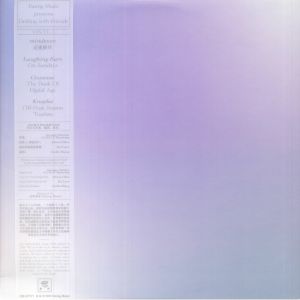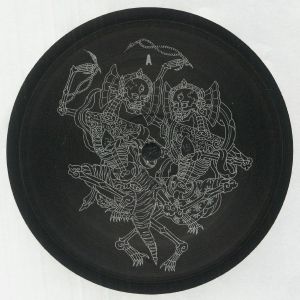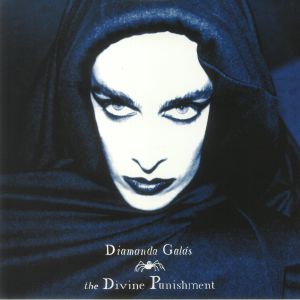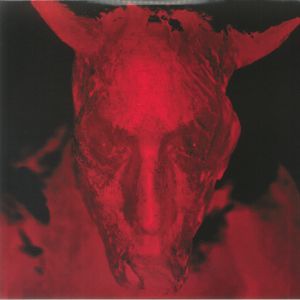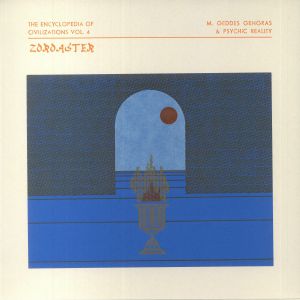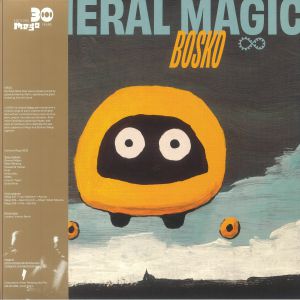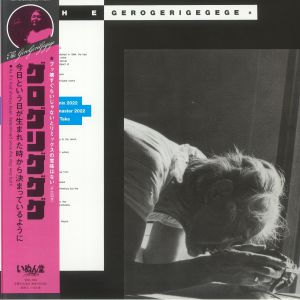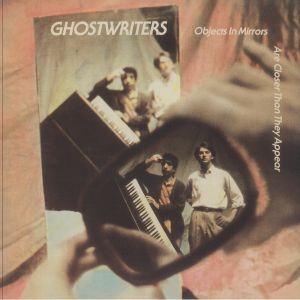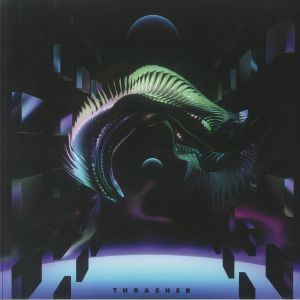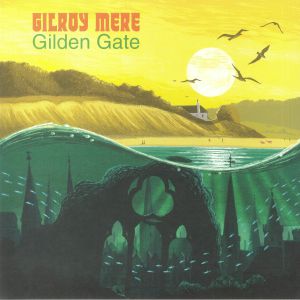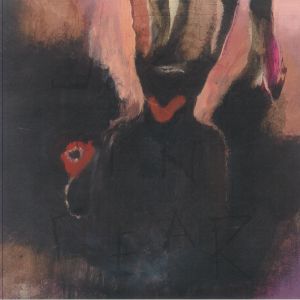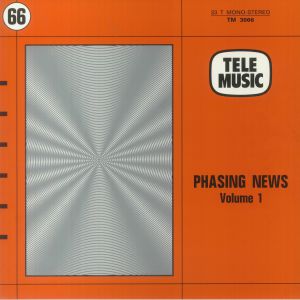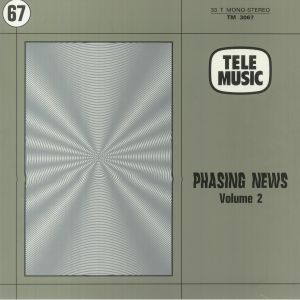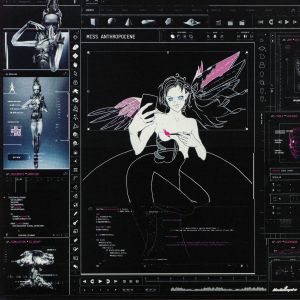Filter
Genre
Stock
Type
Artist
Label
Featured
Release Title
Price
Tags
Back catalogue: Leftfield
Juno's full catalogue of Leftfield
Singles
The Third Chimpanzee Remixed (limited orange & blue vinyl double 12" + MP3 download code)
Cat: L12MUTE 629. Rel: 20 Aug 21
Review: Founding member of Depeche Mode and celebrated singer songwriter in his own right, Martin Gore's The Third Chimpanzee EP is up there with some of the best solo work he has ever put out, with a particularly unique type of dance-synth vibe that you can't escape from no matter how hard you try. Now we have the remixes, which have a lot to live up to but come with plenty of promise.
After all, the chosen producers involved are all heavyweights in their own right, and were certainly ready to step up to the mantle here. Opening with a pair of tracks made different by two of Brazil's most revered techno heads - ANNA and Wehbba - from there we get Berghain bass experimentalist Barker, the fury of Rrose, and percussive wonder of JLin, and that's before we come to the likes of Chris Liebing and Kangding Ray.
… Read moreAfter all, the chosen producers involved are all heavyweights in their own right, and were certainly ready to step up to the mantle here. Opening with a pair of tracks made different by two of Brazil's most revered techno heads - ANNA and Wehbba - from there we get Berghain bass experimentalist Barker, the fury of Rrose, and percussive wonder of JLin, and that's before we come to the likes of Chris Liebing and Kangding Ray.
Gespielt von: Juno Recommends Leftfield, Juno Recommends Experimental
in stock $24.93
EM 037V1 (silver vinyl 12" + MP3 download code with obi-strip)
Cat: EM 037V1. Rel: 10 Aug 22
Review: Outlier experimental label Eating Music brings back more for us to chew on here in the form of a varied four tracker from various artists. It is Mindexxx that opens with 'Track 1' which layers up snaking synths and deeply buried dark bass that grows in intensity and washes over you like a Tsunami. Laughing Ears then cuts back to a tender mood with soft piano chords and slowly unfolding rhythms that are warm and lithe. Gooooose's 'The Dusk Of Digital Age' is a churchy affair with textured drones shot through with beams of synth light and Knopha's 'Off-Peak Season Tourists' layers up choral vocals and jumbled drum sounds into something hypnotic and escapist.
… Read moreGespielt von: Juno Recommends Experimental
in stock $28.54
Cat: BL 006. Rel: 30 Nov 22
Review: Los Angeles-based The Black Lodge began as an intimate gathering place and ritual organised around exploring, sharing and experimenting with diverse forms of electronic music. This is the fourth collection of cuts from various artists of The Black Lodge multiverse. The Poetic Painter M, an alias of Nation chief Traxx, opens up the A-side with the dark late night acid of 'Elusive Clarity Of 1 Mind', followed by Pablo R Ruiz from Detroit providing the spooky lo-fi/sci-fi groove 'El Rey De Amor'. Over on the flip, Michigan's Fashion Flesh serves up a harsh experimental soundscape on 'Kisses' and closes with the tunnelling industrial funk of Fauna53's 'Jam1' (Asymmetrical weirdo orchestra edit).
… Read moreGespielt von: ISOUL8 (Volcov)
in stock $27.43
Alben
The Divine Punishment (remastered) (LP + poster)
Cat: ISO 006LP. Rel: 12 Apr 23
Review: Diamanda Galas's The Divine Punishment was the first album in her Masque of the Red Death trilogy and is a stark, confrontational record that was produced in response to the AIDs epidemic. On the same day it was first released back in 1986, the Supreme Court criminalized consensual sex between men at a time when then epidemic was truly taking hold. Galas uses her voice both to deliver oration taken from the Old Testament as well represent AIDS and its ill effects. Dark analogue synth drones by Dave Hunt and haunting atmospheres complete this most brilliantly bleak put poignant work.
… Read more in stock $29.36
Saint Of The Pit (LP + poster)
Cat: ISO 008LP. Rel: 23 Oct 24
Review: The 1986 sonic pentad by Diamanda Galas, Saint Of The Pit, is the second of two records forming the devised, pestilent occult rite - in her terms, the "plague mass" - known as the Masque Of The Red Death. In clairvoyant dialogue with the first part (The Divine Punishment), both records, in symbiosis, are said to possess an innate correctitude, with saintly playback "possible at maximum volume only." When we oblige by Galas' command, we find ourselves thickly immersed in the kind of sonic esoterics that only the most adept of oneiromancers might be able to swallow and integrate into their mantic: waspish whispers, dulotic dirges, heathen hums. Galas' episcope is a dissenting, idolatrous projection in sound and vision, with 'Artemis' and 'Deliver Me' spanning red-robed, sectarian vocal operatics, not to mention their backing, low-noted, open piano chord strikes. The *eschaton* of the record is, of course, is its quintessential fifth star-point: 'Cris D'aveugle (Blind Man's Cry)', on which Galas, the occult visionary, profanes the lyrical votive candle wax with blasphemous talk of nailed eyes and desecrated caskets.
… Read moreGespielt von: Juno Recommends Experimental
in stock $28.54
Broken Gargoyles (LP + booklet)
Cat: ISO 007LP. Rel: 03 Aug 23
Review: Greek-American legend Diamanda Galas conjours up an ode to a Medieval plague sanctuary in Hanover on her latest brilliantly bizarre new album Broken Gargoyles. The sounds are as unsettling as the cover and were made during the pandemic - hence the references to the quarantine for plague victims. It's a nightmarish mix of synths and spoken words, screeching vocals and distant vowels that very much puts you in the middle a room full of the mentally and physically ill, desperately looking for a way out that isn't there.
… Read more in stock $20.96
Mother Earth's Plantasia (reissue) (limited green vinyl LP + booklet)
Cat: SBR 3030LPC1. Rel: 21 Jun 19
Review: Canadian composer Mort Garson enjoyed an eclectic career, though in electronic music circles he's most celebrated for a string of experimental electronic albums he produced using early Moog synthesizers. "Mother Earth's Plantasia" is a bizarre but brilliant beast: a 1976 set that was designed to be played to plants to help them grow (really) and was given away free at a Los Angeles garden store. As this first ever reissue proves it remains a dizzyingly far-sighted set. Sometimes symphonic, occasionally spacey and always intoxicating, much of the material is far quirkier than contemporaneous synthesizer-fired sets. Highlights include the pulsing ambient spaciousness of "Ode To An African Violet", the twinkling, cascading beauty of "Rhapsody In Green" and the jaunty cheeriness of "You Don't Have To Walk a Begonia".
… Read moreGespielt von: Juno Recommends Experimental
in stock $24.11
Black Dog (gatefold "frosted clear" vinyl LP + insert + MP3 download code)
Cat: INV 305LP. Rel: 26 Oct 23
Review: It can often take months or even years of therapy to even begin to start addressing the real reason you're in the room talking to a trained professional. For Gazelle Twin, it has taken three albums - and more than a decade - to get to a point where it feels comfortable enough to turn her razor sharp songwriting gaze inwards. So, whereas before we heard observations on outward looking subject matter, here we take a turn for the insular. The result is an altogether darker experience, musically and thematically. There's a constant sense of drama and tension to this art-pop odyssey, and subjects such as childhood trauma - and its impact on our adult selves - are never off the table. Almost operatic, while there's plenty here to challenge, not least the universal expectation that later in life things get less scary, ultimately Black Dog is also about overcoming and confronting our most existential fears.
… Read moreGespielt von: Juno Recommends Experimental
in stock $28.26
The Encyclopedia Of Civilizations Vol 4: Zoroaster (LP + 8 page booklet in embossed sleeve)
Cat: ABST 025. Rel: 01 Sep 22
Review: Never heard of Zoroastrianism? Nothing to do with Zorro, this ancient religion is still practiced by a comparatively small number of people today, and has its roots on the Iranian plateau. Hugely overlooked in the modern world, not least given its incredible influence over may of the tropes we associate with recognisable creeds - heaven, hell, good, evil - here M Geddes Gengras and Psychic Reality pay homage to the history of what might be Western Asia's most mythologised and yet misunderstood nation, while also introducing modern sonic elements and effects.
The result is something that's unarguably original. Ambient work that is vivid and transportive, it's highly rhythmic stuff from start to finish, with tracks like 'The Incremental Spirit' taking that format to the nth degree, while the likes of 'Wilde Pastures' break with a more abstract idea of what these sounds can be.
… Read moreThe result is something that's unarguably original. Ambient work that is vivid and transportive, it's highly rhythmic stuff from start to finish, with tracks like 'The Incremental Spirit' taking that format to the nth degree, while the likes of 'Wilde Pastures' break with a more abstract idea of what these sounds can be.
in stock $22.15
Bosko (LP + MP3 download code with obi-strip limited to 300 copies)
Cat: EMEGO 314V. Rel: 30 Jan 25
Review: General Magic's first sonic explorations began a whole three decades ago now and to mark the occasion Editions Mego serves up Bosky. The Austrian duo of Ramon Bauer and Andi Pieper originally emerged with experimental techno releases like Frantz and Rechenkonig with their wonky, avant-garde rhythms. Following a long hiatus, their 2023 comeback Nein Aber Ja reignited their sonic curiosity and this record continues their legacy with unpredictable compositions blending synthetic voices, wild percussion and surreal textures. Tracks like 'Club Duchamp' and 'Noorenhalt' showcase their signature playfulness while Tina Frank's abstract artwork sets the tone. Bosko is a futuristic fusion of robotic punk and perplexing funk, perfectly suited for today's AI age.
… Read more in stock $31.86
Dream Less Suite (limited 2xLP)
Cat: CORTIZONA 023. Rel: 21 Mar 23
Review: Adding to the seemingly endless pile of reissues/retrospectives that focus on anything remotely related to COUM Transmissions or Throbbing Gristle, here comes 'Dreams Less Suite', which is a compilation album made up entirely of Hafler Trio and Genesis P-Orridge's unused film soundtracks, live shows and versions. Describable perhaps as 'dream noise', this album somehow straddles both the grating and the serene, quickly hopping between everything from industrial techno to glassy hell sounsdcapes.
… Read moreGespielt von: Juno Recommends Leftfield, Juno Recommends Experimental
in stock $33.23
As If It Had Always Been Determined Since This Day Was Born (LP + insert with obi-strip)
Cat: WC 104. Rel: 11 Apr 24
Review: Japanese industrial noise duo The Grogerigegege are something of an urban legend within the underground music scene. Apparently meeting at a sex club where a shared appreciation for envelope pushing sex acts, punishing aural sonics and a bizarre avant-garde perspective on art would lock them together for ensuing decades of musical mayhem. Known for incorporating nudity, violence, broken glass and hoovers into their live set, the pair would even take a lengthy respite while one of the members simply disappeared for years on end before reconnecting with his counterpart. As If It Had Always Been Determined Since This Day Was Born transports listeners back to the pair's earliest forays into calculated extremity with blown out, overdriven remixes taken directly from the master tapes of their first 7" single released back in 1988. This includes the long sought after remaster of 'Mistress' originally used in the legendary Enoshima Beach Flexi Burning Live (which the pair opted to burn all original pressings of rather than make readily available). You do have to remember these are the same lads who sold dried out octopus tentacles in cassette cases during one tour as a limited release, and smashed up the master recording of another work and put the broken pieces in a metallic box that the listener shook to hear the album, hence the title You Are The Music Maker. If the utter lunacy of The Grogerigegege isn't detailed enough here, well this pressing comes complete with 5500 word essay-style liner notes penned by 55 year old Gero himself (Juntaro Yamanouchi).
… Read more in stock $35.19
Music For Unknown Rituals (gatefold 2xLP + MP3 download code limited to 300 copies)
Cat: UR 149LP. Rel: 20 Nov 23
Review: Another exceptional double album deep dive from Umor Rex mainstays Andreas Gerth and Carl Oesterhelt, respectively one-half of Driftmachine, and the artist who debuted with the landmark 11 Pieces for Synthesizer album. As ever, trying to summon adjectives to correctly describe what's here isn't easy, but let's give it a go anyway. Mysterious, dark, haunting, but also ultimately very beautiful - albeit often in a slightly chilling way - it's highly rhythmic patient stuff. A fitting title, it's hard not to picture tribalism, gatherings, premeditated practices and timeless traditions when becoming absorbed by the hypnotic contents here. It's transportive stuff, both in terms of time and place, era and style, a sense of loops and cycles being the real omnipresent thread here. Earthen ambient, strange factory floor downtempo, cinematic synths and more. The kind of record that's only possible when two people haul themselves up in a remote village with an abundance of instruments and see what happens.
… Read more in stock $40.45
Cat: DE 297. Rel: 07 Oct 24
Review: Dark Entries are reusing two albums from Philadelphia-based experimental duo The Ghostwriters. their debut as well as this follow-up, Objects in Mirrors Are Closer Than They Appear from 1981. Formed by the late Buchla innovator Charles Cohen and multi-instrumentalist Jeff Cain in 1971, the duo initially performed as Anomali before evolving into The Ghostwriters. Their work is a mix of improvisation and composition and it always stood out for its unique electroacoustic sound shaped through collaborations with visual artists and choreographers. Objects in Mirrors delivers eight minimalist tracks to get stuck into from the chaotic groove of 'Fix It in the Mix' to the ethereal "Moon Chant.' This remastered edition includes photos, and liner notes, and will donate proceeds to SOSA (Safe from Online Sex Abuse).
… Read moreGespielt von: Juno Recommends Leftfield, Juno Recommends Experimental
in stock $25.48
Thrasher (Soundtrack) (LP + MP3 download code)
Cat: THRILL 617LP. Rel: 22 Aug 24
Review: Brian Gibson has worn a few hats. All of them of high musicality and thoroughly innovative. To some, he's best known as bassist for the legendary duo, Lightning Bolt. For others, he's the guy behind a slew of fantastic video game soundtracks and compositions. Not least 2016's epic, Thumper. No prizes for guessing where this is going, Thrasher is the long-awaited sequel, marking his return to virtual reality worlds. The game itself has been described as "a mind-melting arcade action odyssey and visceral audiovisual experience", and when you learn the whole thing sees players following a weird space insect as it evolves and mutates, that quote seems less wild and conceptual. Alas, we digress. In terms of tunes, you could be forgiven for thinking Thrasher is a stand alone album, one that uses elements of IDM, ambient, bass, and more to fuse a highly immersive and inescapable electronic triumph.
… Read more in stock $23.67
Gilden Gate (sea green vinyl LP + MP3 download code)
Cat: PIPE 033LP. Rel: 22 Mar 23
Review: Gilroy Mere aka Oliver Cherer shows off two different sides of his sound on this new Gilden Gate album for Clay Pipe. It is the latest in a long line of superb sounds over the course of two decades which have distilled folktronic, singer-songwriter, jazz, ghost-pop and guitar tinged disco rock. Here he soundtracks sun-kissed beaches and rural Suffolk on side one and then goes underwater to explore through music the lost city of Dunwich,
… Read more in stock $23.83
Keyboard Fantasies (gatefold 180 gram vinyl LP + MP3 download code in spot-varnished sleeve)
Cat: TRANS 460X. Rel: 09 Apr 21
Review: RECOMMENDED
The re-discovery and re-appraisal of Beverly Glenn-Copeland's work is one of the more surprising outcomes of the pandemic's great pause, which for some people at least meant having more time to dive into the archives of cultural history, from music to literature to movies. Not that the spotlight isn't wholly deserving. As this 1986 album shows, the artist was well ahead of their time, with this strange, heady brew of electronic exoticism, experimental ambient and percussive poetry easy to mistake for a contemporary record.
Glenn-Copeland's own story is also a pretty interesting one. Now 76 years old, the maestro spent years identifying as a lesbian woman, before investigations in gender discourse led to the revelation that a transgender man was a more comfortable identity for the music maker, who also lays claim to a catalogue of kids' TV scores, including Sesame Street and Shiny Time Station.
… Read moreThe re-discovery and re-appraisal of Beverly Glenn-Copeland's work is one of the more surprising outcomes of the pandemic's great pause, which for some people at least meant having more time to dive into the archives of cultural history, from music to literature to movies. Not that the spotlight isn't wholly deserving. As this 1986 album shows, the artist was well ahead of their time, with this strange, heady brew of electronic exoticism, experimental ambient and percussive poetry easy to mistake for a contemporary record.
Glenn-Copeland's own story is also a pretty interesting one. Now 76 years old, the maestro spent years identifying as a lesbian woman, before investigations in gender discourse led to the revelation that a transgender man was a more comfortable identity for the music maker, who also lays claim to a catalogue of kids' TV scores, including Sesame Street and Shiny Time Station.
in stock $21.33
Review: Japanese percussive and rhythmic experts Goat have finally graced us with a new album. It's taken around eight years to materialise, and band leader Koshiro Hino apparently described the process as "90% pain", which sounds like there's quite the tale to tell. No doubt all will be revealed to fans in due course, but for now let's just say one of the world's most enigmatic, talented (read: unfathomably tight) and complex groups are back on incredibly fine form. As ever with this crew, attempting to come up with reference points to guide would-be-buyers as to wether this is for them feels redundant simply because it should be impossible not to find Joy In Goat captivating. Fans of Miles Davis and Autechre alike should be bowled over, with highly technical, drum-led arrangements that sound like they could only possibly be machine made coming out of what is essentially a piece of expressive performance art on record.
… Read more in stock $32.13
Review: Piscolabis II continues the sonic journey of its predecessor, Piscolabis I, by blending organic and robotic elements with Golden Bug's signature experimental style. The ten new tracks on this volume are even more adventurous and offer heavy rhythms with razor-sharp guitars from Lionel and distorted grooves driven by drum machines. Opener 'Paradis' is an epic choral track that sets the tone for the slow, raw, and hypnotic sounds that follow. Highlights include 'Red Wolf' featuring Phoebe Coco, the stiff rhythmic mechanics of 'Ricochet' and the psychedelic 'Hi No Tori' with Japanese guest Vega Voga. This is an album rich in sensory sounds that leave you listening in awe.
… Read more! low stock $27.98
Review: The Tele Music archival reissues series continues with this rather cosmic LP from Michael Gonet, one of the many esteemed library musicians to have graced the label and library's many halls in the early 1970s. Phasing News Volume 1 captures his approach well; slow-burning synthesizers, electric pianos and percussion, coalescing into neat motifs for cosmic alien arrivals, depraved montages, and awestruck final scenes. Those harbouring soft spots for Tangerine Dream's soundtracks are likely be impressed by the likes of the 'Soul Cathedral' and 'Moon To Light' tracks, but a complete jazz-prog curveball is thrown come 'Light In The Rains', after which the album is never the same.
… Read moreGespielt von: Mimi
in stock $28.54
Review: Continuing Be With's library music reissues series is this latest callback to the rare 1979 album French composer and producer Michael Gonet, who, like many of his contemporaries, created futuristic and experimental sounds for TV, radio and film, working at the precipice of a new, transitional media age. Dripping from this bleeding edge comes twelve strange tracks for timpani, synth and odd time signature, occasionally dipping into styles ranging from synthpop, minimalism and funk. Choice weirdo segments include the forbidden-planetary 'Phasing Percussions' tracks and the dastardly instrumental-fonky 'Devil Dances'.
… Read more in stock $28.54
Review: It's hard not to be impressed by everything Grimes touches. From the moment this album's trippy downtempo titular opener emerges from submerged depths of sound you know the latest from the Canadian is going to be a special moment in pop. As if to accentuate our point, "Delete Forever", two tracks later, introduces acoustic guitar tips while still retaining deep timbre and utilising effects to hypnotic ends on those hummed vocal loops. "IDORU", which closes out the record, feels far more playful, simple keyboard and whispered choral lyricism introduced with a backing track of bird song, before broken club beats fall in. It might be most fitting to finish a write up on the aptly-titled "You'll Miss Me When I'm Not Around", its guttural bass guitars and EDM-leaning vocal stabs not the only things reminding us the world would be weaker without this one.
… Read more in stock $24.93
Next World Sound Series Vol 2 (gatefold silver vinyl 2xLP + insert)
Cat: HYPSPLP 010. Rel: 06 Feb 24
Review: "The Next World Sound Series is a collection of work by contemporary sound artists working in long form instrumental composition and translated to the tangible medium of vinyl. These modern day offerings capture the analog quality and experience of last century electronic recordings, presented to you with today's technological advances in home playback, for your environmental listening pleasure." Or so say heads at the iconic and truly enigmatic label Dark Entries of this latest addition to their catalogue. A collection of work that spans the strangely frantic sci-fi tones of 'Oberenginen 0930' to the almost monastic drone of 'Soma', dubbed and muffled drums and vocals on 'Lixsm', club-ready broken beats of 'Destruct', and the evocative futurist refrains and samples of 'John Gore'. As expansive as it is exploratory and adventurous, you'll need to set aside some serious listening time for your first play here.
… Read more in stock $45.43
Review: "One might thus regard the Welsh rarebit as a Machine in which a process is applied to the conditioning and perception of the world of bread and cheese." Suffice to say, John White might not have had the same ideas about what constitutes Machine Music back in 1976 as you do today. This is also the first time we've ever managed to get a reference to Welsh rarebit into the first line of writing about a record, so everyone is learning something today. "The Machines" White refers to are the individual tracks themselves, all recorded between 1967 and 1972 and all comprising different combinations of a thing. Six pairs of "bass melody instruments" made 'Autumn Countdown Machine', different permutations of "the articulations 'ging, gang, gong, gung, ho!'" comprise 'Jews Harp Machine'. And 'Son of Gothic Chord' is crafted from the sequential chord progression of four keyboard players, spanning an octave. Conceptual experimental and wildly imaginative stuff on the borderline of electronica, abstract, mathematical and something otherworldly.
… Read more in stock $29.10

 USD
USD







